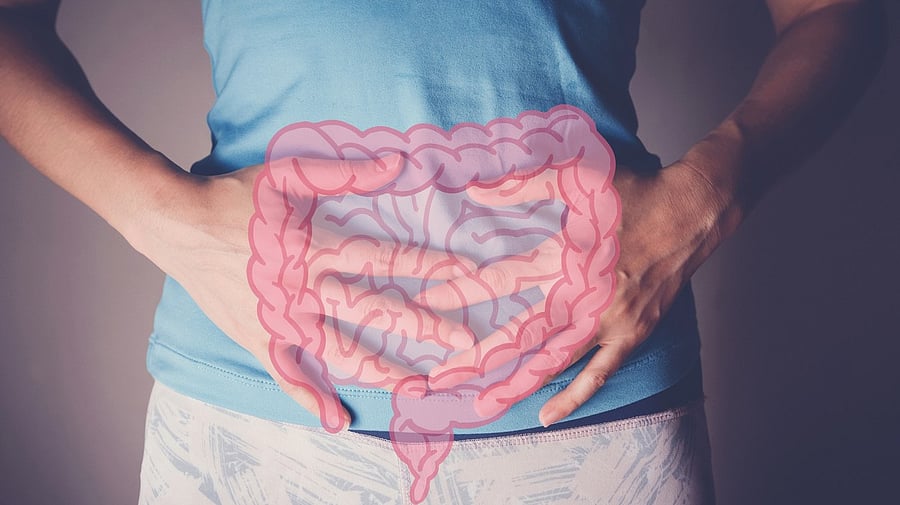
Representative image.
Credit: iStock Photo
Bengaluru: Poor diet and worsening lifestyle habits are driving a sharp rise in Inflammatory Bowel Disease (IBD) cases in Bengaluru, doctors say.
Public awareness about the chronic condition, which causes inflammation of the digestive tract, remains low. It is often mistaken for irritable bowel syndrome (IBS), though the two are different, and the exact cause of IBD is still unknown.
IBD includes Crohn's disease (inflammation of the digestive tract lining) and Ulcerative Colitis (ulcers in the colon and rectum). In Crohn's disease, the small intestine struggles to absorb nutrients, leading to weight loss, persistent diarrhoea, and poor quality of life.
The number of cases has surged over the past decade, notes Dr Uday Nagesh Shivaji, senior consultant gastroenterologist at a private hospital on Hosur Road. “In 2010, India was estimated to have 1.4 million cases. It’s now believed to be three to four times that,” he says.
Dr Naresh Bhat, chief of gastroenterology and hepatology at a hospital in Hebbal, says his unit records six to eight new Crohn’s cases every month — similar to numbers seen in the West. “Unfortunately, some are first misdiagnosed with tuberculosis because the symptoms resemble Crohn’s,” he notes.
While both genetic and environmental factors affect gut health, doctors say genetics play a relatively minor role.
"A pro-inflammatory diet high in processed foods, red meat, additives, and dietary emulsifiers alters the gut microbiome and increases the risk of IBD,” says Dr Bhat.
'Hygiene hypothesis'
Dr Adarsh CK, chief consultant gastroenterologist and hepatologist at a private hospital in Kengeri, points to the ‘hygiene hypothesis’ as another factor. “People who weren’t exposed to enough infections in childhood may lack immune tolerance, making them more susceptible to IBD. This trend is more common in higher socioeconomic groups,” he says.
He warns that overusing antibiotics can wipe out good gut bacteria and that over-the-counter probiotics may be ineffective without medical supervision.
Diagnosis & treatment
Patients typically undergo blood and stool tests and, if necessary, radiological scans. Endoscopy remains the gold standard to assess disease severity, say doctors.
Most patients respond to first-line treatment with medication and lifestyle changes, monitored every three months. Immunosuppressants are used in severe cases, while surgery is considered when complications arise.
Warning signs
Rectal bleeding or blood in stools, often with abdominal pain.
Persistent diarrhoea (lasting over two weeks).
Unexplained weight loss.
Loss of appetite and extreme fatigue.